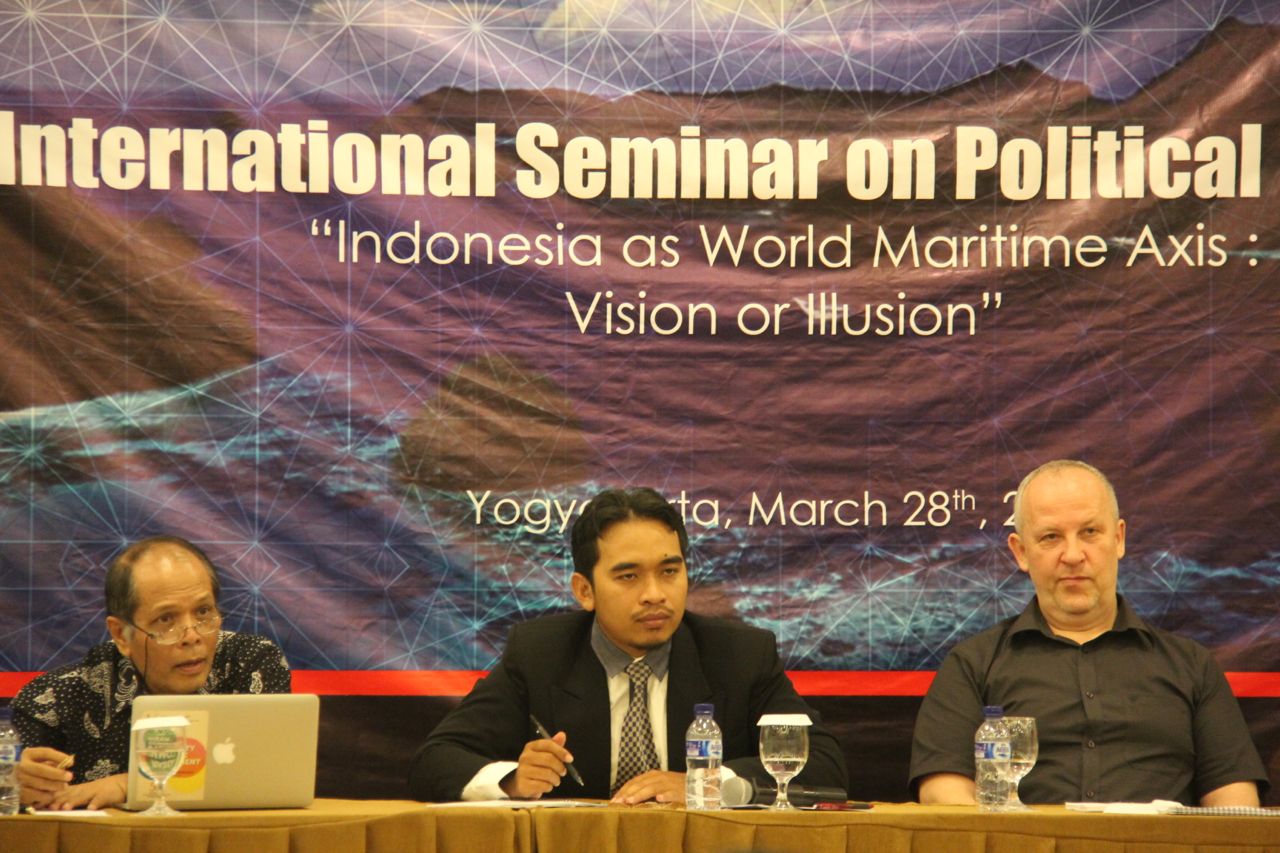Joko Widodo-Jusuf Kalla’s government has a program to bring back Indonesia as a maritime country. It could be noticed from current actions by Fisheries and Maritime Affairs Minister as sinking foreign vessels fishing illegally in Indonesian waters. According to Jokowi, it was an effort to preserve state sovereignty and to optimize entire Indonesian marine resources for Indonesian prosperity.
The aforementioned paragraph was uttered by a professor of International Relations of Gadjah Mada University (HI-UGM) Prof. M. Mohtar Mas’oed, Ph.D as the first speaker of International Seminar on Political Studies (ISPS). The seminar theme was “Indonesia as World Maritime Axis Vision or Illusion”. The event was organized by Student Executive Board of Faculty of Social and Political Sciences (BEM-FISIPOL) of Universitas Muhammasduyah Yogyakarta (UMY) on Saturday (28/03).
“Jokowi’s vision and mission has an improvement program of Indonesian maritime management, and fishery industry development through establishing maritime power entirely for community prosperity. Additionally, Jokowi honorably conveyed, on several of his state visits, Indonesia marine resources are abundant, and he invited his visited countries to cooperate as well as invest in Indonesia. Nevertheless, community has not perceived yet impacts of the policy,” he stated.
Mohtar elucidated that economic prosperity from Indonesian resources as a maritime country has not been recognized yet since there are error factors of community’s mind set. Additionally only a few businessmen look at marine potential, and so do a small number of communities seeing economic income source from seas. The communities tend to focus on capital city or other metropolises to seek a job as a source of economic income. As the result, Indonesian marine resources have not been optimally utilized yet.
“‘Nenek moyangku, seorang pelaut,’ (my ancestor is a sailor). We must recognize the song lyrics. It is true that our ancestor was a sailor holding marine resources, focusing economic politics in oceans, yet it is not anymore. We are now lagging in employing our marine resources. Our power of marine management is still frail. We are still swarming to work in areas (land). For instance, all people attempt to migrate to Java to look for a job or establish a company,” he explained.
Mohtar added that Jokowi’s political maritime would be hard to bring into reality owing to the vision and mission differences between the President and other governmental elements. The distinction ensued because people in government were from different parties. The government was formed from party coalition basically possessing distinct vision each other. Therefore, Jokowi’s maritime political policy could not be carried out easily till the bottom level of governmental structure.
Furthermore, the second speaker of Founding Director of the Germany-Indonesia Center for Good Governance in Yogyakarta Prof. Dr. Chrictoph Behrens asserted that maritime political policy in Germany and Indonesia is distinctive. In Germany, parliament and the state leader have the same concern with development and increasing of marine potential so that maritime politics of government would work well.
“Besides concentrating on maritime management, sustainable political policy to implement in governmental program is through elevating knowledge of naval, maintaining economic market stability from marine resources, saving environment in seas, lifting tourism service quality by marine information, retaining good governmental stability, upholding environmentally friendly fishing to increasing hauls, and evolving marine resources. All the programs are a manifestation of maritime politics to develop German prosperity,” he inserted.








